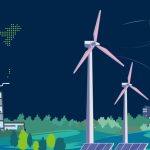Malaysia has cemented its commitment to closing the national economic gender gap by becoming the first ASEAN member nation to join the World Economic Forum’s (WEF) Global Gender Parity Accelerator Network. This public-private collaboration platform, which operates across over 35 economies, signals a strategic national shift towards leveraging female talent for inclusive and sustainable growth.
The partnership is timely, building on modest recent progress. While the nation improved six places to rank 108th out of 146 countries in the WEF’s Global Gender Gap Report 2025, there remains significant ground to cover, particularly in economic participation.
The national response: Wanita MyWira
Following the new collaboration, the Human Resources Ministry (Kesuma) immediately launched the ambitious Wanita MyWira Accelerator initiative. Spearheaded by the ministry’s strategic think tank, TalentCorp, the program is designed to equip over 100,000 women with high-growth, future-ready skills in essential sectors such as artificial intelligence (AI) and renewable energy by 2030.
The initiative received immediate support from across the government. Women, Family and Community Development Minister Datuk Seri Nancy Shukri emphasized the broad national benefit. “When women succeed, the nation succeeds,” she stated, adding that the effort is “creating real pathways for women to access decent work and participate fully in Malaysia’s economy.”
Targeting economic gaps:
The initiative directly addresses the nation’s female labor force participation rate (FLPR), which currently stands at 56.5%—still below the national target of 60% by 2030. The core aim is to remove systemic barriers that prevent women from entering or returning to the workforce.
Human Resources Minister Steven Sim outlined the multi-pronged approach, which promotes supportive workplace cultures. “Through the Wanita MyWira Accelerator, the government aims to remove barriers to women’s participation in the workforce by offering training for flexible job opportunities and promoting family- and caregiving-friendly workplaces,” said Sim. He further underscored the economic necessity of this drive, noting that “Inclusivity and flexibility are no longer optional—they are the new competitive advantage.”
The partnership allows Malaysia to tap into global best practices developed within the WEF Network, which have successfully guided countries like Japan and Chile in implementing policies such as gender pay gap reporting and extended parental leave. This blend of international expertise and targeted local investment is aimed at building a more agile and competitive workforce, aligning with the Madani vision of compassion and shared prosperity.













